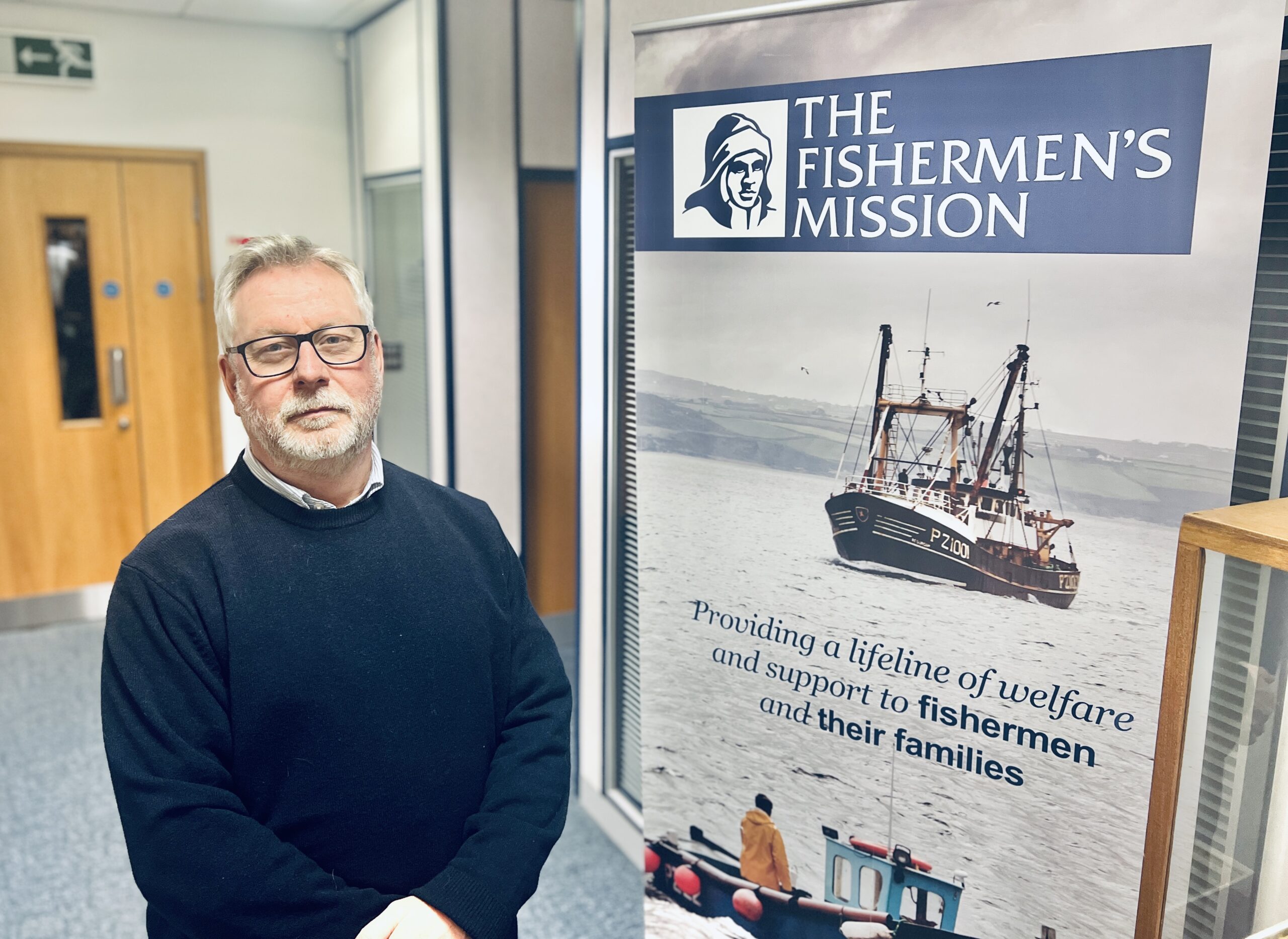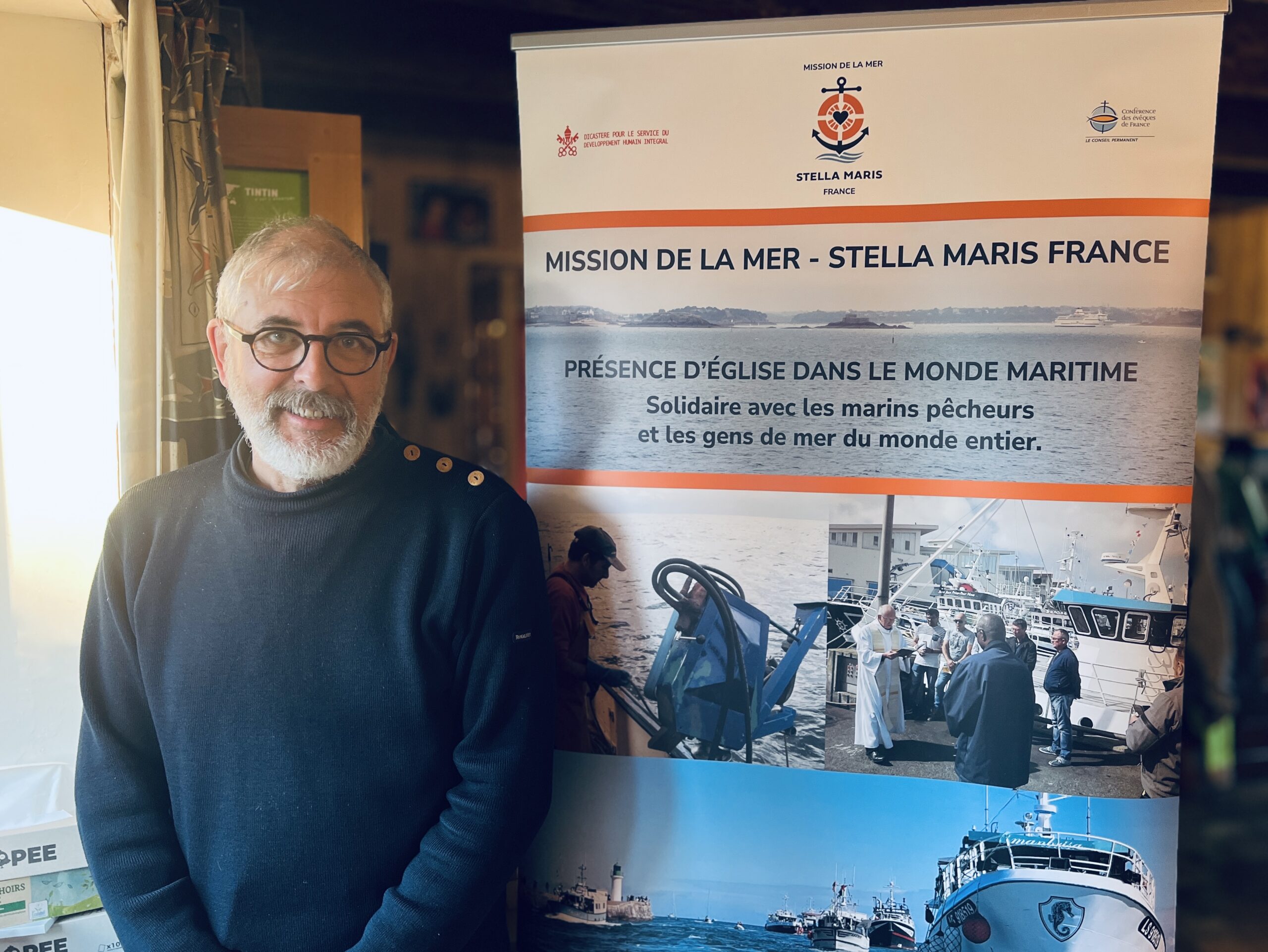by Fr. Column Kelley
Lord Yahweh, I do not know how to speak. Then Yahweh stretched out his hand, touched my mouth and said to me, “There ! I have put my words into your mouth” (Jer 1:6-9)
Over time I have encountered many chaplains in my formation work for Stella Maris, not only chaplains to the people of the sea, but those serving in hospitals, hospices and prisons. This latter group were people I met during time spent with Muslim chaplains as guest presenter on their courses.
What does a chaplain of the maritime world have in common with those working in completely different fields? Quite a lot actually and it has been my great joy to learn of our common ground. Chaplains generally tend to people who carry hurt whether physical or psychological. Our journey to them is inspired by our sense of mission, to reach out to those in need. The ministry may be merely one of small gestures, a smile, a greeting. And those small actions have the power to transform. Much can be said of that power, but here I want to take a look at first steps, and there is no more basic question than “what do I say?”
Anyone reading this might be involved in seafarers’ ministry at some level and what a daunting thing that can be especially in the early days.
Do you remember yours feelings as you approached a gangway for the first time? Apprehensive, I hope. Feeling inadequate, “Why am I doing this?” I say this for there is nothing more unsuitable to the ministry of chaplaincy than an attitude that screams the faux confidence of someone who feels they have everything to teach, but nothing to learn. This type of person brings conflict and not healing.
My first ship visit was preceded by a sleepless night and when I climbed the first steps of the gangway my total concentration was focused on getting to the top in one piece.
Of course every chaplain has been blessed with many gifts in their lifetime. Your call to ministry is also a call from the Lord to carry those gifts with you and put them to good use.
The Gospel parable of the “talents” is a clear instruction to all of us. Over years of chaplaincy those gifts will have served your crews very well.
So there you are, top of the gangway, calm restored, in front of you the smiling faces of the watchmen pleased to see you, greetings exchanged, then what?
A word about the starting point of the voyage, easy crossing or not. All of that will come naturally. What then?
The answer will depend on many things but the first thing a chaplain or ship visitor must have with them is an understanding of why they are there.
Let me explain. In many years of training chaplains there are two questions I need to ask.
Tell me what you do as chaplain? They like that question and will spend a long time telling me about the number of ships they visited, the things they were able to bring on board. I usually need to stop them so I can get to the second question.
You’ve told me what you do. But why do you do it?
The answer to the second question usually needs further prompting. Hopefully we get to a shared understanding of the call of the Gospel of outreach to the stranger; to walk alongside those to whom we have been sent.
As a starter, gauge the situation around you and do it quickly. If you walk into the mess room with a good number of crew, what do you sense; do them seem a happy bunch eager to great you or does there seem some underlying tension. Maybe they are tired from a very long crossing. Whatever you find, be sensitive to it, be the angel of their moment.
There is no need to feel you have to entertain them, to make their day. Believe me, I seen it attempted, usually by a nervous chaplain who felt they had to make the running.
You are in their home so wait for an invitation to sit down, don’t just take a space and think you have to become the centre of attention. Of course, the state of every mess room will vary depending on the age of the vessel and its maintenance. I very fondly remember an invitation on one ship to “sit down and make yourself comfortable” I looked around and remember thinking “How?”
Then if you are invited into the conversation buzz, do so gently. Don’t feel the need to dominate, to make the event a story about yourself. It all seems so obvious doesn’t it?
We are blessed in that seafarers are generally pleased to see us and every chaplain will have been enriched as they leave the ship by the crew’s farewell “thank you for your visit”.
Many people visit ships in the course of their work, agents, border force operatives, inspectors of various kinds. Their job usually involves questions, form filling, finding faults that need to be rectified. Their presence on board often brings its own degree of tension.
We must never be seen like that no matter how mistakenly our efforts may be interpreted.
I remember one day I brought a person on board as prospective ship visitor. It was my job to gauge this person’s suitability. Could we proceed with training or did we need to stop the process in its infancy?
This potential ship visitor was a lovely person, well-meaning but had never visited a ship before.
We went on board a bulk carrier that had arrived in the night so the crew had very little sleep and were beginning to drift into the mess room for lunch. My guest sat with a fairly young lad who I wouldn’t imagine had endured many voyages.
It was soon obvious that what should have been a gentle conversation was in fact an inquisition. Question after question at breakneck speed. The poor lad was soon exhausted and like the good umpire, I stepped in and abandoned the contest.
For above all, we are charged to be listeners, again a skill that hopefully builds up over time. We get enthused and sometimes stressed about what to say.
I urge you to develop your listening skills for they will stand you in better stead in the raw world of seafaring. I don’t mean hearing words because serious listening demands much more than that. Over the years I have no doubt that the time I spent listening bore more fruit than all my words, eloquent though they may have been!!!
Even in the course of what may have been an uneventful journey, seafarers are stressed by the constant “doing” – working and eating with the same people day in and day out. They love to talk, they love you to listen so that they know their story is important.
So in terms of everyday conversation, keep things simple, let the seafarer direct the course of the chat. If you feel things are stalling, ask about family; the last time communication was possible, the length of contract still to run.
One the most important skills I learnt in my chaplaincy, was that of knowing when to be silent, when not to ask questions. We need to become comfortable with silence for there will be times when being present is of much more value that the ability to drag up words.
That is not as easy as it sounds but it may be something which could be the topic of further reflection.
May your words bring comfort always, may they help raise the broken hearted, give hope to those who despair, and enlighten the darkness of those who are gladdened just because you are there.
About the Author: Fr. Colum Kelley served as Stella Maris (Apostleship of the Sea) port chaplain in Immingham, UK for 16 years. Read more about his work as a port chaplain in the recently published At Sea, Awaiting Orders.
Image: Fr. Column Kelley in Immingham Port with seafarers, 2013. Source: Flikr.





